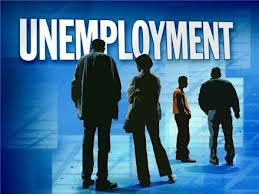
Labor Day is no picnic For the unemployed (Sep 02, 2013) ByThe Oklahoman Editorial • Published: September 2, 2013 Reposted by: American News Online “PICNIC” is a three-act play taking place in a 24-hour period, Labor Day, in a small Kansas town. As the William Inge drama ends, its two principal characters are headed for Oklahoma in hopes of a better life. Labor Day is a national holiday with undercurrents of the same theme — hope for a better life. But this Labor Day, like the six or so before it, is no picnic for the millions of Americans who can't find full-time employment. This is a holiday best known for sending up a flare that said summer was over, school had started, Jerry Lewis was having his annual telethon and football season was underway. The day after Labor Day, perhaps more so than the first work day after the Christmas/New Year's break, is a time when Americans truly get down to business following a long period of disruption. Labor Day isn't a big deal in Oklahoma except in Henryetta, which celebrates its union heritage with an annual observance. Elsewhere it's just another three-day weekend given over to cookouts (when burning isn't banned) and picnics (if it's not too hot). Last year, Labor Day was the ceremonial kickoff for a presidential race that had started two years earlier. Thirty-two years earlier, Ronald Reagan chose Labor Day for a campaign speech that was either grand or grandiloquent, depending on your view of Reagan then and now. Economic conditions, then and now, share the traits of economic malaise and a job engine stuck in low gear. Reagan gave his speech at New York Harbor, with the Statue of Liberty as a backdrop. It was a time when Jimmy Carter's policies were raining out the picnics of American workers. High unemployment. High inflation. High taxes. As the only U.S. president to have also been a union boss (Screen Actors Guild), Reagan could view the world from the vantage of an employer/manager and an employee. Carter, his opponent in 1980, was a favorite of the union bosses but not necessarily the rank-and-file. Their hopes for a better life weren't being met by the Carter administration, just as they aren't being met today by the Obama administration. Reagan said the Statue of Liberty had welcomed millions to these shores who wanted a better life and who wanted to achieve it through their own labor, not through government largesse. The Carter record, Reagan said, was “a litany of despair, of broken promises, of sacred trusts abandoned and forgotten.” This is not unlike what Obama said 28 years later in campaigning against a man (George W. Bush) whose name wasn't even on the ballot, in 2008. And it's not unlike what Obama continues to say, even though he's had ownership of the economy for years. He's doing little better than Carter in convincing us that anemic job growth should be overlooked in favor of the audacious hope he's been peddling for years. In his harbor speech, Reagan quoted the Labor Day message given one year earlier by union chief George Meany: “As American workers and their families return from their summer vacations, they face growing unemployment ... and a climate of economic anxiety and uncertainty.” Today, union leaders are grumbling about the effects of Obamacare, which portends massive government spending for subsidies and premium rate hikes for workers and employers. They're complaining about Obama's reticence to approve the Keystone XL pipeline. Obama has had plenty of chances to reverse course. He's had chance after chance to restore true hope and revive the economy. Instead, The Great Divider focuses on income inequality, stressing the gap between the richest Americans and the poorest. This does nothing to improve the lot of working Americans. It does not create a single job. The U.S. unemployment rate is stuck at 7.4 percent, lower than the rate when Obama took office but higher than it should be. Obamacare isn't helping by driving more Americans into the ranks of part-time workers. In terms of the jobless rate, Reagan had an even rougher first term than Obama, but he didn't constantly complain about the economy he had inherited. Instead, he went to work trying to change that situation. Unemployment hit nearly 11 percent in 1983, but began a steady drop. Reagan ended his second term with a jobless rate at 5.4 percent. Wouldn't it be nice if Americans had a reason to pack a hamper and have themselves a picnic, to celebrate prosperity, hard work and thrift this year? Instead, as the first Monday of September rolls around, year after year during the Obama era, we mark another Labor Day with sluggish economic growth, ever-expanding and unaffordable government. And presidential speeches that divide rather than unite, that lack vision and fail to celebrate American exceptionalism. Job No. 1 for Obama when he took office was to get more Americans off the unemployment rolls. He has not done his job. It's beginning to look like he never will. This editorial by Opinion Editor J.E. McReynolds is adapted from one published on Labor Day of 2011. |